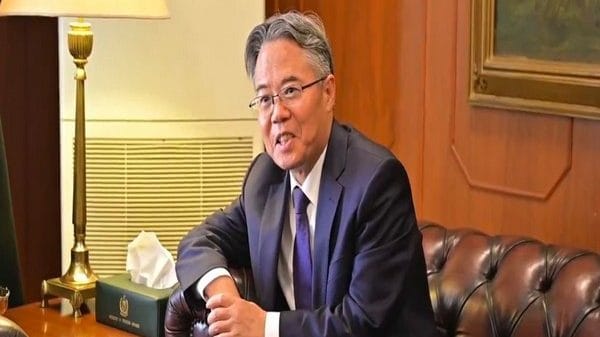New Delhi: Pakistan’s foreign ministry has expressed surprise after Chinese envoy Jiang Zaidong publicly castigated Islamabad for the repeated attacks on Chinese citizens in the country and urged it to do more for their security.
At a conference Tuesday, Jiang said the wellbeing of the Chinese nationals working on the China-Pakistan Economic Corridor (CPEC) project was Beijing’s biggest concern.
Citing attacks including the 6 October incident near Karachi’s Jinnah International Airport and a March strike in Khyber Pakhtunkhwa that killed five Chinese engineers, Jiang asked for action against “all anti-China terrorist groups”.
“It is very unacceptable for us to be attacked twice in only six months, and these attacks have also caused casualties,” Jiang said at the ‘China at 75: A Journey of Progress, Transformation, and Leadership’ conference organised by the Pakistan-China Institute in Islamabad.
The ambassador warned that an unstable environment could hinder bilateral projects, particularly those related to the CPEC, adding that protection of Chinese workers was essential to maintaining and advancing the close partnership between the two countries.
Jiang called on Pakistan to take “effective remedial measures to prevent the recurrence of such terror acts and ensure that perpetrators are identified, caught, and punished”, characterising these assaults as a “constraint” on Belt and Road Initiative (BRI) projects in the country.
Seven Chinese nationals have been killed in a series of attacks in Pakistan since the beginning of this year, and 21 since the CPEC began a decade ago. The CPEC is a flagship project of China’s BRI that aims to improve Pakistan’s road infrastructure and trade with China.
Pakistan’s sharp response
In a media briefing Thursday, foreign ministry spokesperson Mumtaz Zahra Baloch said Pakistan was perplexed by the envoy’s “public” statements as they “do not reflect” the traditional diplomatic relations between the two countries.
“The statement from the Chinese ambassador is perplexing, especially considering the positive diplomatic traditions between Pakistan and China,” Baloch said.
She called the Chinese “valued guests” making invaluable contributions to the development of Pakistan and said Islamabad was dedicated to ensuring the security of Chinese nationals, projects, and institutions in Pakistan.
Baloch reaffirmed that investigations into the attacks were ongoing, echoing foreign minister Ishaq Dar’s statement two days ago.
At the Tuesday event, Dar underscored Pakistan’s commitment to counter-terrorism and ensuring the safety of Chinese nationals. He said details of the probe have been shared with Chinese authorities.
The presence of Chinese people in Pakistan has grown in recent years, particularly due to CPEC projects that include road, rail, and energy infrastructure development aimed at enhancing regional connectivity and economic growth.
While the CPEC is an ambitious project worth over $60 billion, Pakistan’s economic distress has not been ameliorated—the country is suffering from high inflation and ever-increasing debt, a huge chunk of which is owed to China.
Attacks claimed by Baloch militants
The Balochistan Liberation Army or BLA has claimed responsibility for the March and October attacks on Chinese convoys in Pakistan.
The BLA accuses China for disguising its exploitative business in the garb of development for Pakistanis. It has maintained that the infrastructure projects were not aimed at local development but at China’s own economic ambitions.
Baloch rebels have previously targeted Chinese interests, including the 2018 assault on the consulate in Karachi, an attack on Chinese tourists at Gwadar’s Pearl Continental Hotel in 2019, and a 2022 suicide bombing at Karachi University’s Confucius Institute.
(Edited by Tikli Basu)
Also Read: Pakistan commitment to security of Chinese citizens: Ishaq Dar






